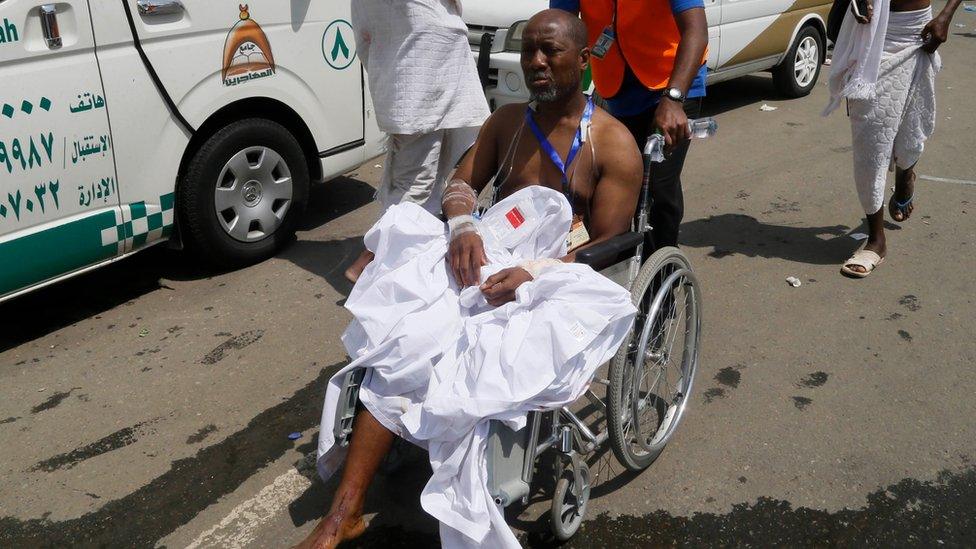Hajj stampede: Iran's Khamenei calls for Saudi apology
- Published
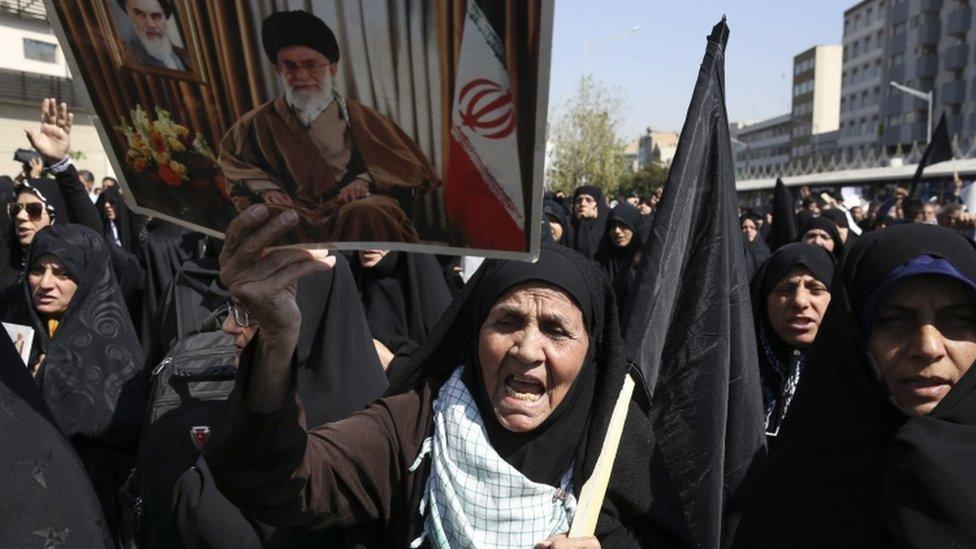
Many Iranians are angry about what they see as Saudi incompetency in the handling of the disaster
Iran's supreme leader has called on Saudi Arabia to apologise for Thursday's deadly stampede during the annual Hajj pilgrimage in Mecca.
Ayatollah Ali Khamenei's remarks came after a speech by President Hassan Rouhani at the UN in which he called for an investigation.
Saudi Arabia has accused Iran of playing politics with a tragedy.
At least 769 people died in the crush, more than 140 of them from Iran.
It was the deadliest incident to hit the Hajj in 25 years.
The crush occurred on Thursday morning as two large groups of pilgrims converged at right angles as they took part in the Hajj's last major rite - stone-throwing at pillars called Jamarat, where Satan is believed to have tempted the Prophet Abraham.

Analysis: Sebastian Usher, BBC News Middle East editor
As pilgrims completed the final rituals of this year's Hajj in the shadow of Thursday's tragic events, the row between the Saudis and Iran over who was responsible only grew in virulence.
Iran lost at least 140 of its citizens in the disaster. But its outrage has political motivations, too, as its battle with Saudi Arabia for regional dominance sharpens week by week. The rivalry between Shia Iran and Sunni Saudi Arabia also has a religious dimension.
Despite all the billions the Saudis have spent on the infrastructure of the Hajj, there is a growing chorus of criticism which extends beyond Iran.
It is claimed that their organisation of the pilgrimage may not have paid enough attention to the basic human level of managing the mass influx of pilgrims so that all are treated equally, as the simple white clothing they assume on entering Mecca is meant to symbolise.
Disaster puts pressure on Saudis
In pictures: Aftermath of the stampede
Hajj stampede: What we know so far

"This issue will not be forgotten and the nations will pursue it seriously," Ayatollah Khamenei said.
"Instead of accusing this and that, the Saudis should accept the responsibility and apologise to the Muslims and the victims' families," he added.
"The Islamic world has a lot of questions. The death of more than 1,000 people is not a small issue," he said, citing claims by Iranian officials of a higher death toll.
President Rouhani has described the stampede as "heart-rending".
Also on Saturday, Prosecutor General Sayed Ibrahim Raisi said on state television that Iran would seek the trial of the Saudi royal family over its "crimes" in "international courts".
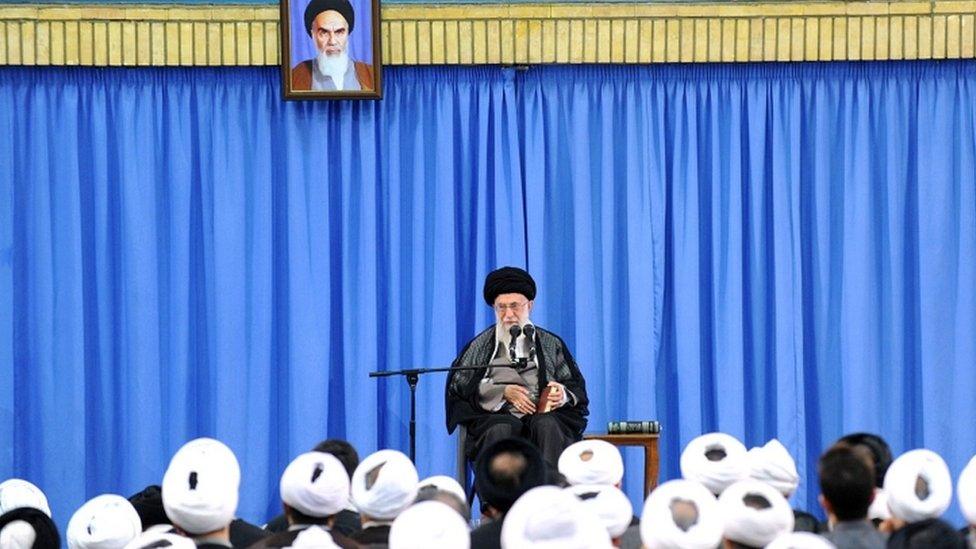
Ayatollah Khamenei said the tragedy would not be forgotten
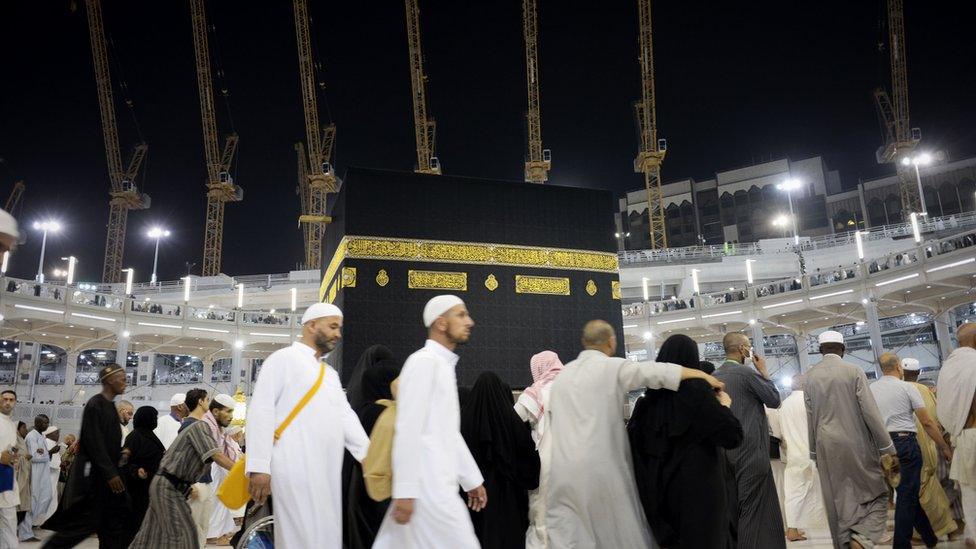
The Hajj ended on Saturday without further incident
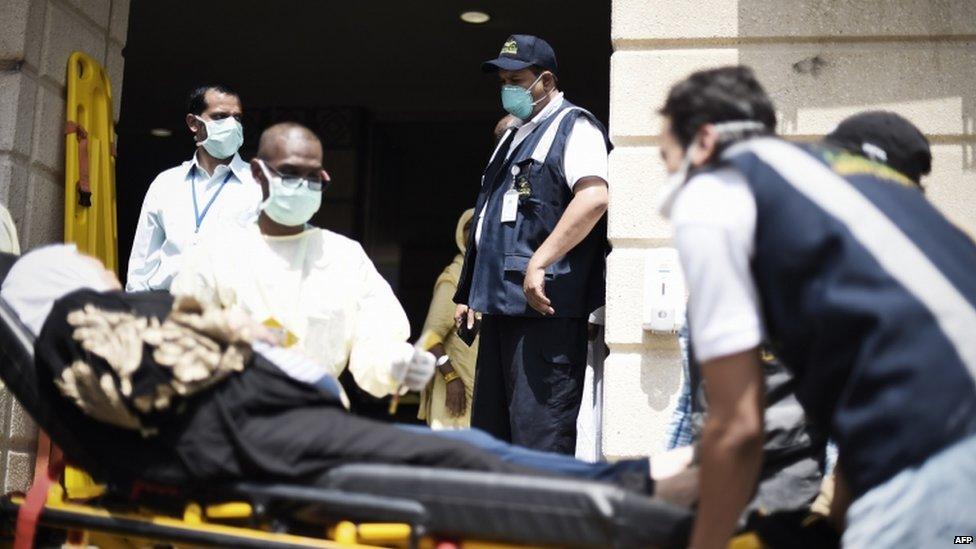
In addition to the dead, more than 900 people were injured
BBC reporter Tchima Illa Issoufou: "I lost my aunt as a result of the stampede"
As well as the fatalities, 934 people were injured.
But Saudi Arabia's Foreign Minister Adel al-Jubeir, who is in New York to attend the UN General Assembly, said on Sunday: "This is not a situation with which to play politics.
"I would hope that the Iranian leaders would be more sensible and more thoughtful with regards to those who perished in this tragedy and wait until we see the results of the investigation."
Earlier, the country's most senior cleric, Grand Mufti Sheikh Abdul Aziz bin-Abdullah al-Sheikh, defended the authorities, saying the stampede was "beyond human control".
King Salman has ordered a safety review into the disaster.
The disaster is the second to strike in two weeks, after a crane collapsed at the Grand Mosque in Mecca, killing 109 people.
Saturday was the final day of the Hajj, with no further incidents reported.

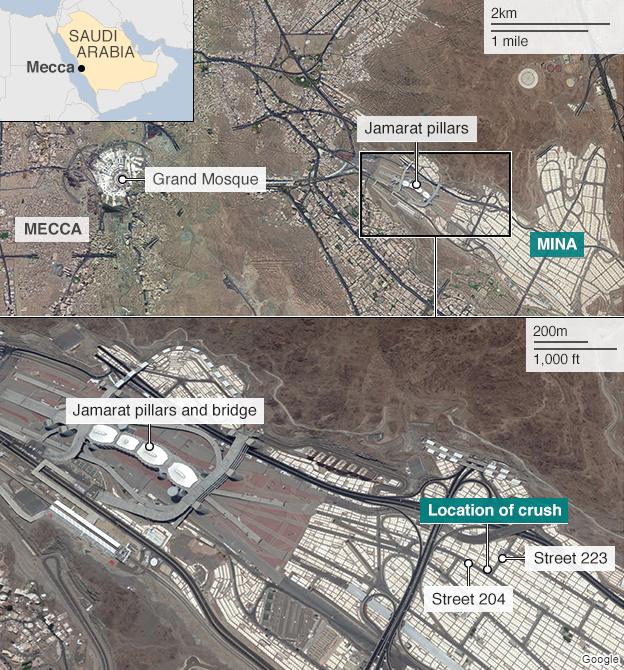
Deaths reported so far by nationality
Iran: at least 140
Morocco: 87 (media reports)
Cameroon: at least 20
Niger: at least 19
India: 18
Pakistan: 18
Egypt: 55
Chad: 11
Somalia: 8 (media reports)
Senegal: 5
Algeria: 4
Tanzania: 4
Turkey: 4
Indonesia: 3
Kenya: 3
Nigeria: 3
Netherlands: 1
Burundi: 1
Burkina Faso: 1
Other nationalities (numbers not yet known): Benin
Saudi helplines: 00966 125458000 and 00966 125496000

- Published25 September 2015
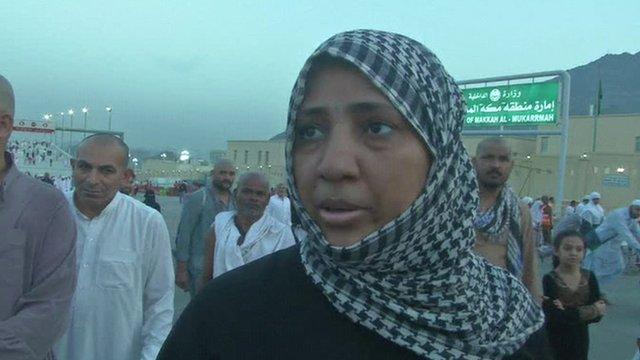
- Published25 September 2015
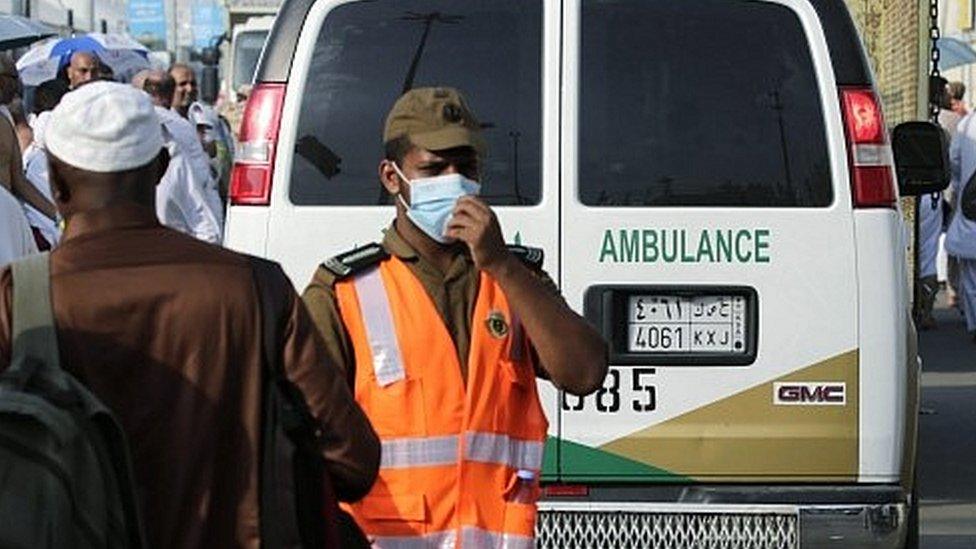
- Published25 September 2015
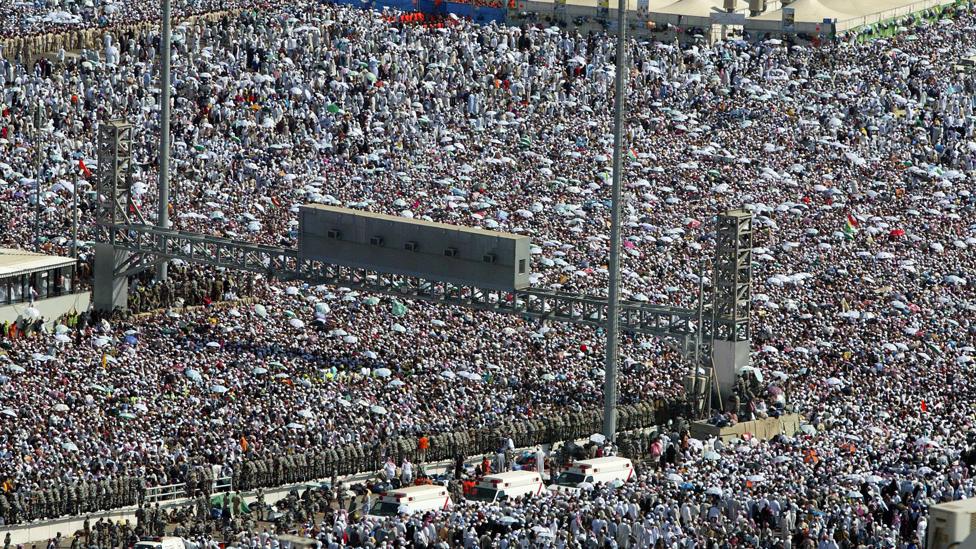
- Published25 September 2015
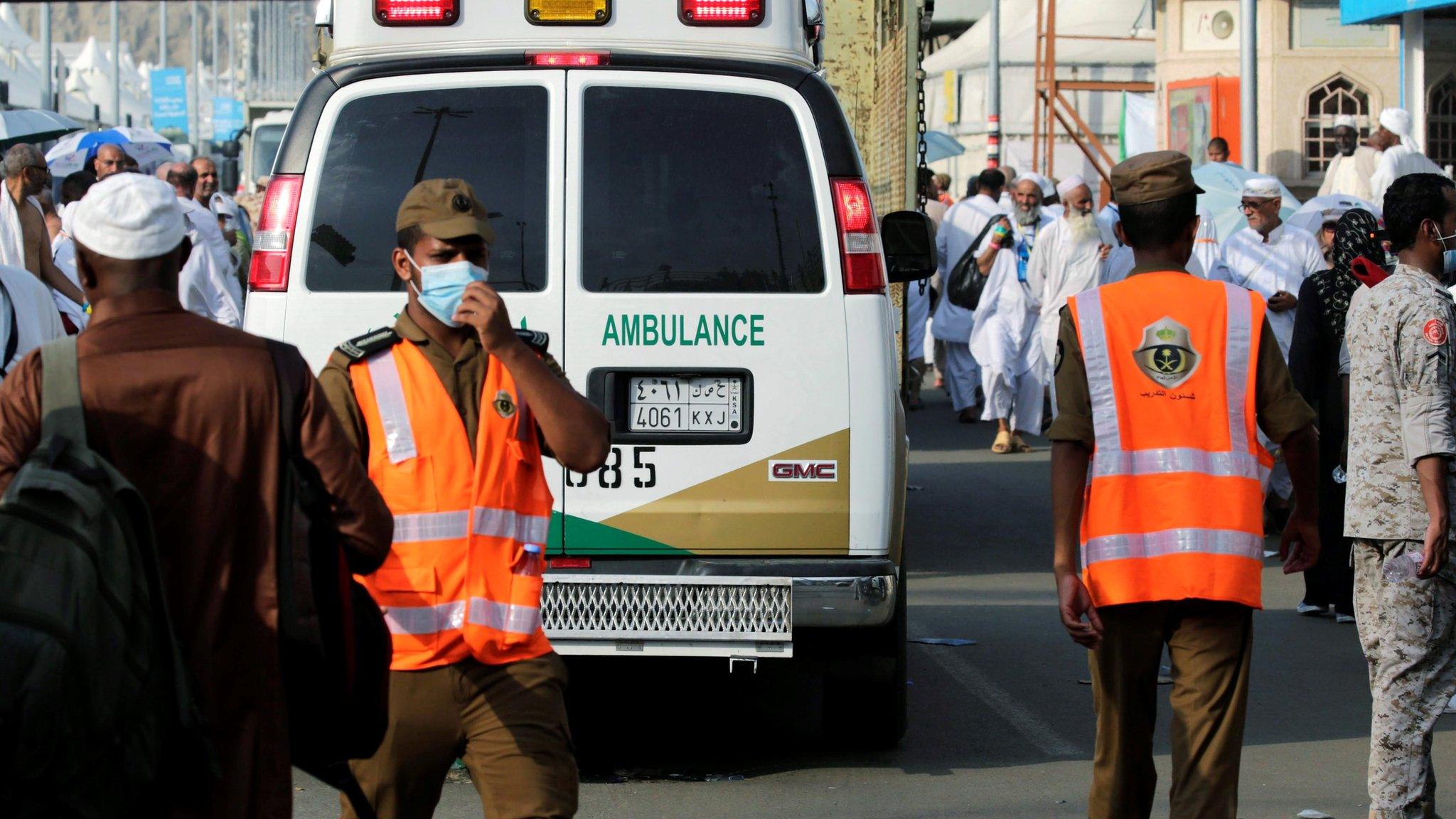
- Published25 September 2015
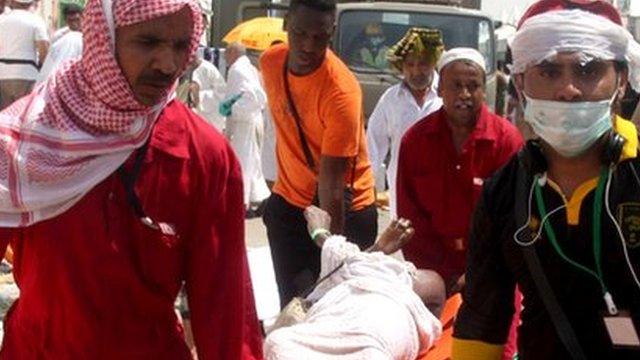
- Published25 September 2015
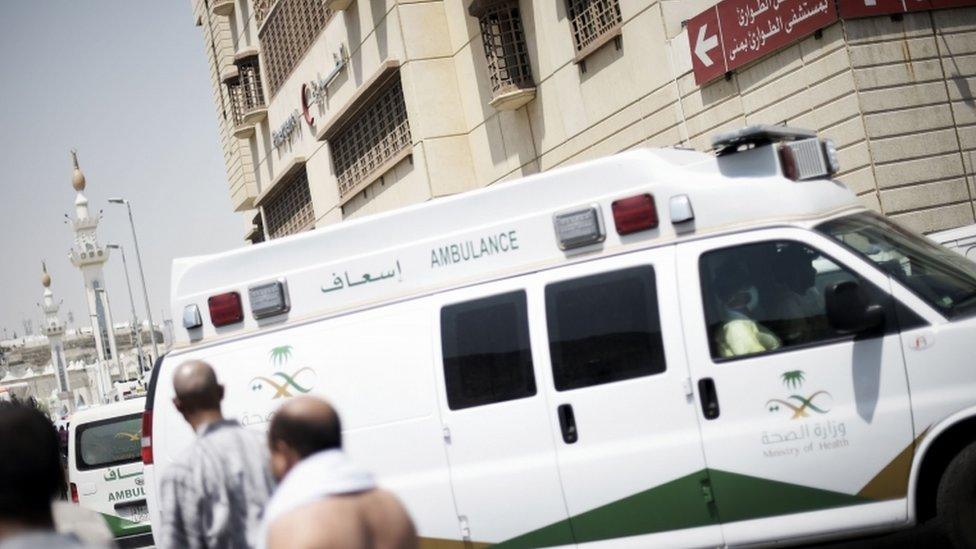
- Published24 September 2015
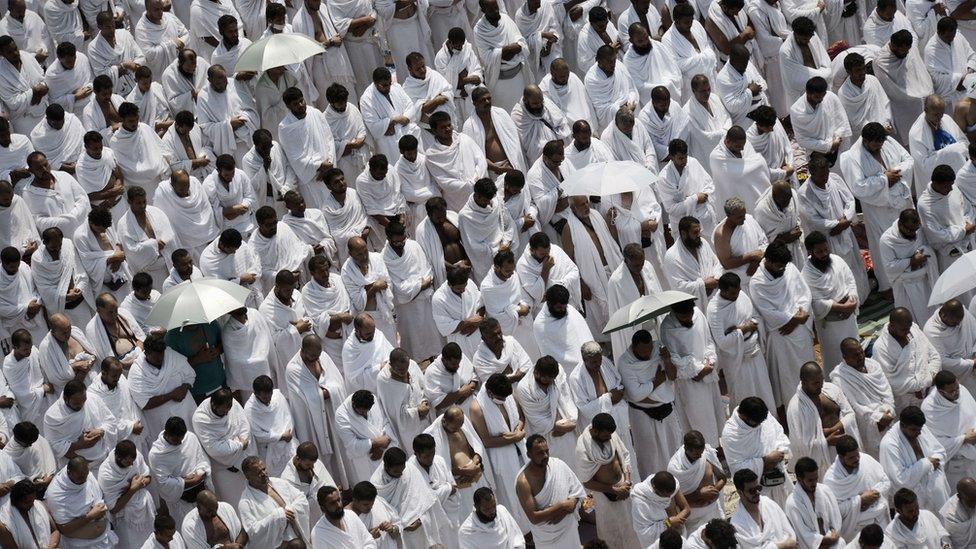
- Published24 September 2015
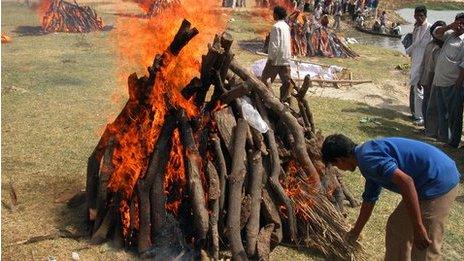
- Published24 September 2015
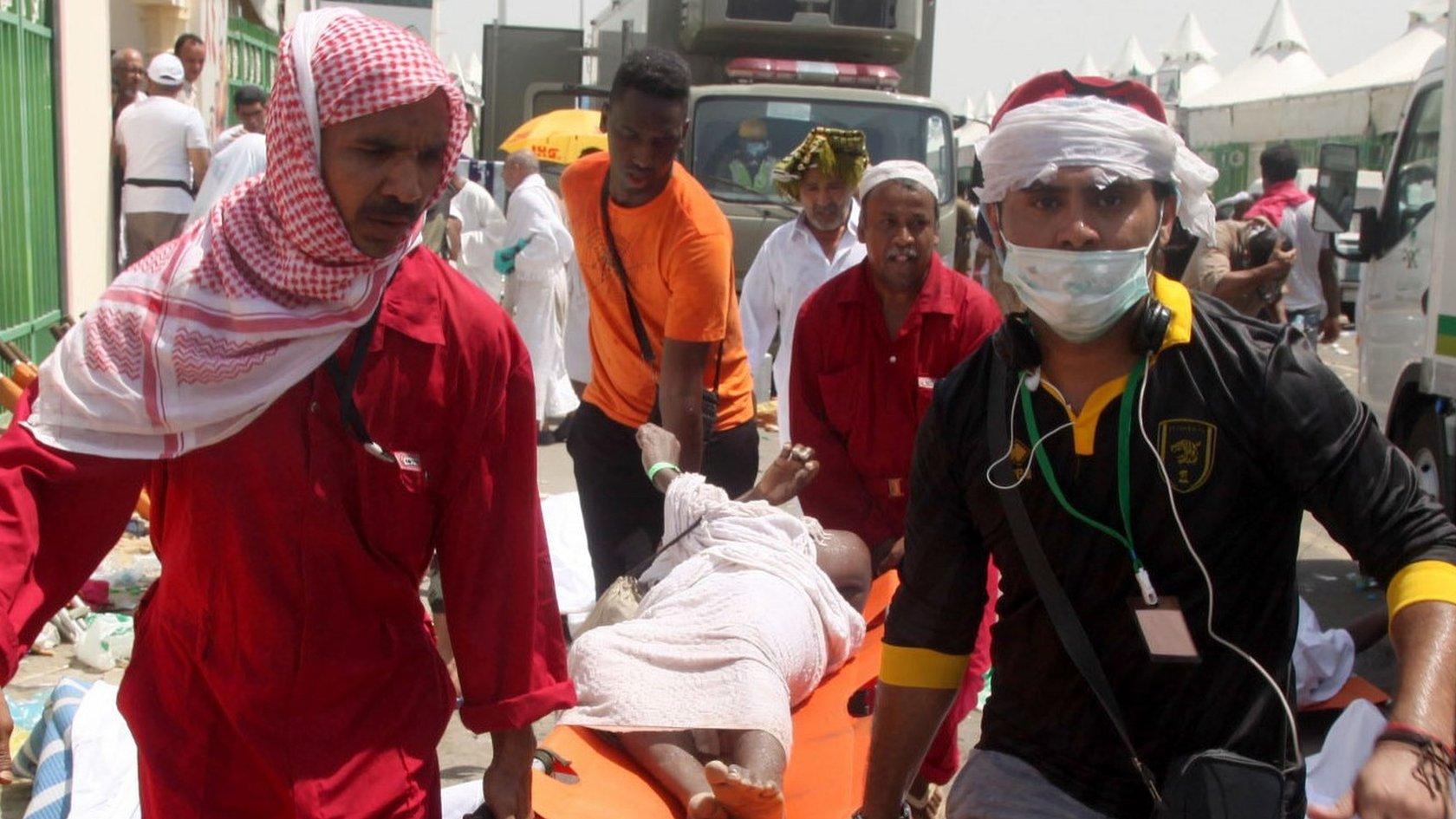
- Published24 September 2015
